How to Be Optimistic (if you’re an Eeyore)
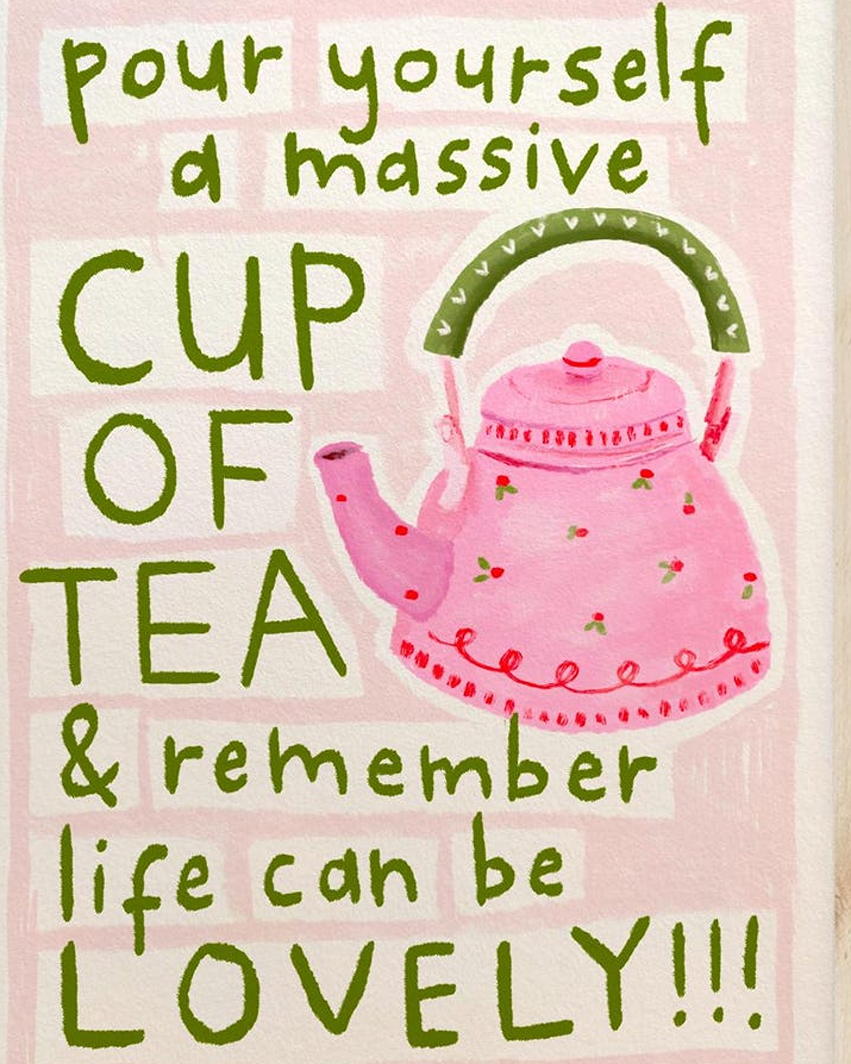
Optimism is not blind faith. It is a trained habit. It helps the mind stay calm, sharpens problem-solving, and often leads to better choices. Research in positive psychology, including work by Martin Seligman, shows that optimistic thinking links to better mental health and improved outcomes.
Choose your company wisely. Rather than listen to narcissistic world leaders, turn off the news and just spend time around silly people! Or dogs – dogs are delightfully silly most of the time!
Shift Your Perspective to See Hope
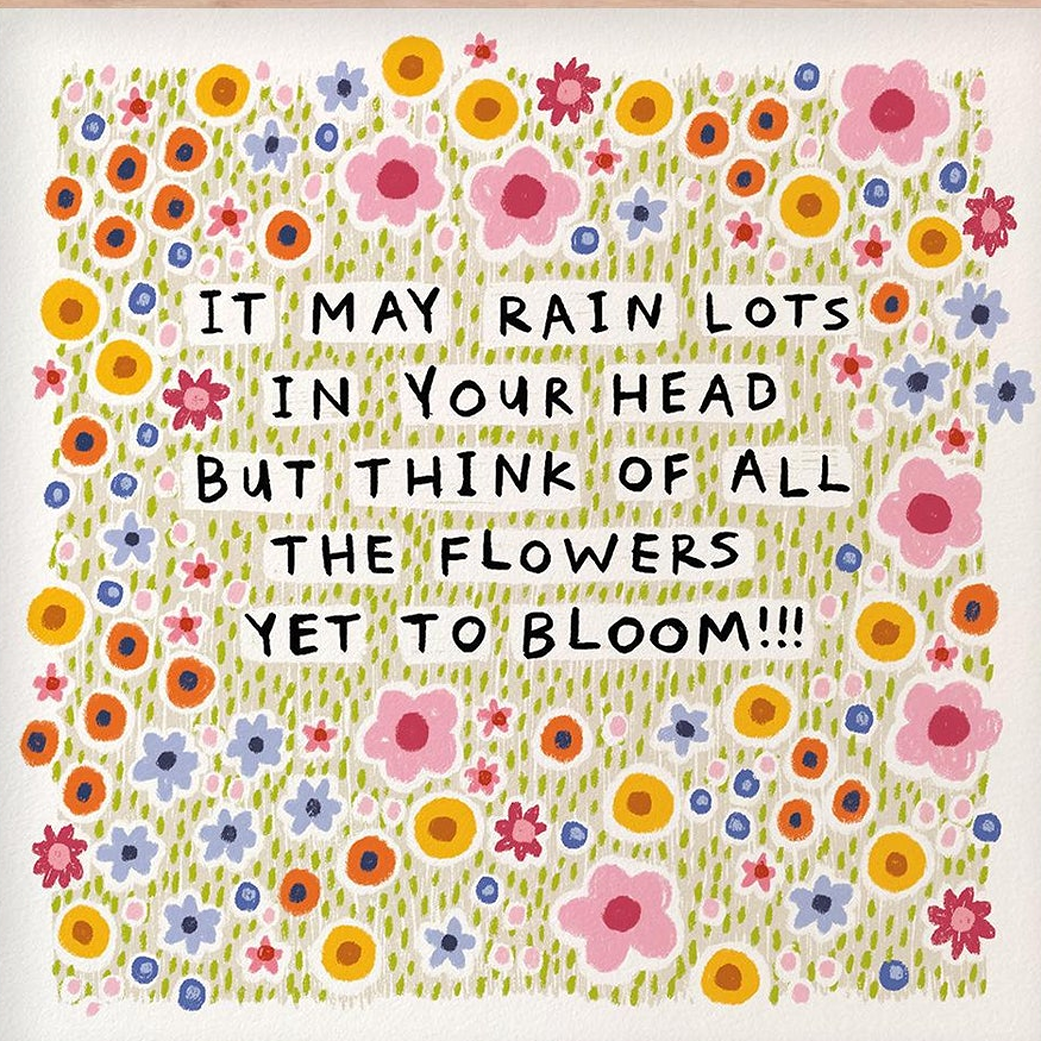
Optimism starts with how you explain setbacks. Your mind writes a story about what went wrong and what it means. Change the story, and you change your options.
Start with a quick reframing exercise. When you stumble, ask, what can I learn here? A failed pitch can teach timing, clarity, or audience fit. A strained friendship can teach boundaries and honest talk. Failures can act like trainers in a gym. They hurt, then they build strength.
Gratitude practices reduce stress and increase well-being. Studies linked to the University of California have found that regular gratitude habits improve mood and sleep. Try a 3-minute check-in each night. List small wins, even a warm cup of tea or a kind message. The mind notices what you ask it to find.
Challenge your thoughts with evidence. Pessimism thrives on vague claims like I always mess up. Put that claim on trial. Ask:
- What facts support this thought?
- What facts challenge it?
- What would I say to a friend who felt this way?
- What is a more balanced view?
Use simple journaling prompts to anchor this shift. Try these:
- Today I handled one thing well, it was…
- One thing outside my control is…, one thing I can do is…
- If this problem was a chapter, what would I call the next chapter?
These small moves create space. With space comes choice, and with choice comes hope.
Practice Gratitude Every Day
End each evening with three things you are thankful for. Keep it short and specific. This simple act trains your mind to scan for what works, even in a storm. Research from the University of California has linked gratitude to better mood, stronger social bonds, and lower stress.
Sample journal entry:
- I am grateful for my neighbour who checked in.
- I enjoyed a quiet walk after lunch.
- I finished a task I had avoided.
This routine builds inner strength during crises. It reminds you that good moments still exist. It also nudges you to notice people who care, which deepens trust and lifts your outlook.
Tip: keep your notebook by your bed. Write before you reach for your phone.
Reframe Challenges as Temporary
Hard times feel permanent in the moment. Picture a storm over the sea. It rages, then it clears. Most problems pass or change shape with time and effort.
Separate what you can control from what you cannot. You can control your effort, routines, and how you speak to yourself. You cannot control market shifts, past choices, or other people’s reactions. List both on paper, then act on the first list.
This simple step echoes ideas from cognitive behavioural therapy. Your thoughts affect feelings and actions. When you label a setback as temporary and local, not permanent and global, your mood steadies.
Example: You miss a promotion. A permanent story says, I will always be overlooked. A temporary, specific story says, I need to build skill X and seek feedback Y for the next round. The second story points to action.
Surround Yourself with Positive Influences
Your outlook often mirrors your circle. Choose inputs that lift you. That might be a podcast with calm guidance, a book that brings hope, or a friend who listens well. Limit doom scrolling and constant breaking news. Set times to check the news, then step back.
Build a supportive network:
- Share goals with one or two trusted people.
- Join a local group, class, or online community with kind norms.
- Offer help where you can. Giving raises mood and deepens ties.
Self-check: Who lifts you up? Who drains you? Adjust your time with care.
Adopt Habits That Foster Optimism
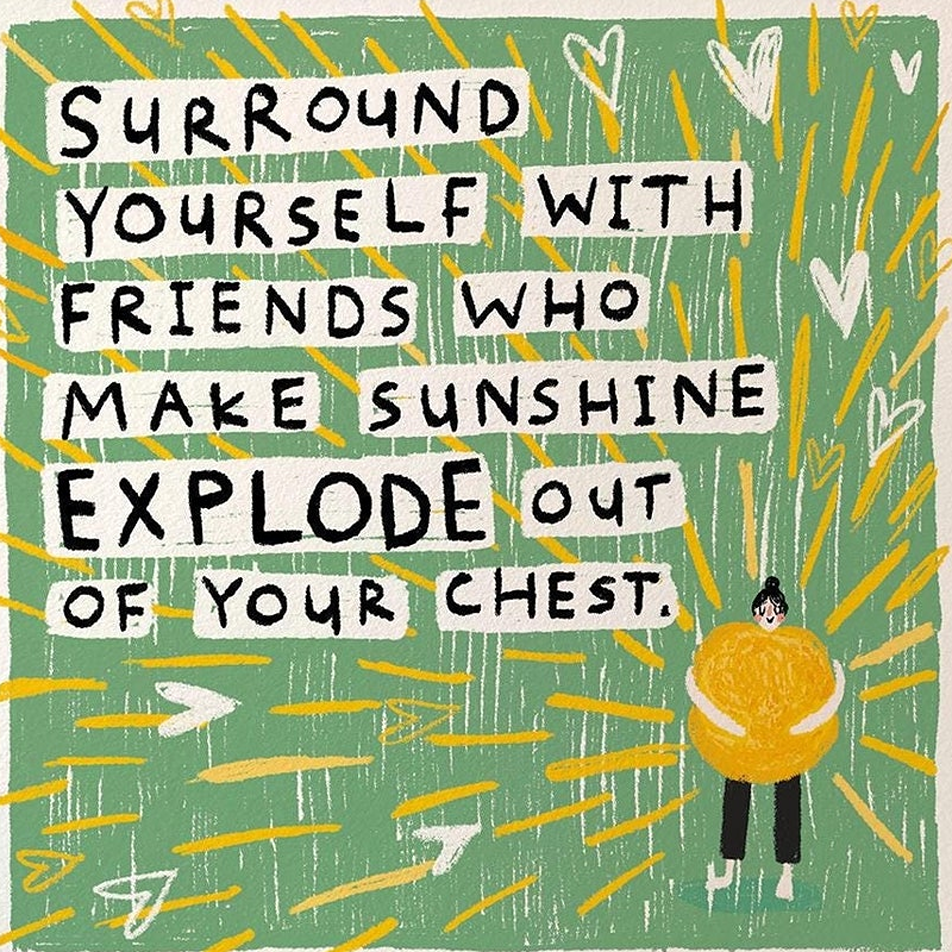
Optimism grows with steady habits. It is like brushing your teeth for the mind. Small acts repeat, then they stick. James Clear’s work on habits highlights the power of tiny cues and wins. In hard times, simple routines keep your footing.
Start with a stable morning and evening routine. Keep it short. For example, water, stretch, plan three tasks in the morning. Reflect, gratitude, light reading in the evening. Anchor new habits to existing ones. After I brew my tea, I take five slow breaths. After I brush my teeth, I write three lines in my journal.
Use your environment to support change. Lay out walking shoes by the door. Keep your notebook on your pillow. Turn off non-essential alerts. Make the easy choice the right choice.
Track your effort, not just outcomes. A tick on a calendar for each walk or journal entry gives a sense of progress. That progress boosts hope.
Incorporate Movement and Mindfulness
Movement clears mental fog. A 10-minute walk can lift mood by releasing endorphins. If you worry about money, deadlines, or family pressures, a short walk helps you think straight.
Try this five-minute meditation script:
- Sit tall, feet flat. Rest hands on your lap.
- Close your eyes or soften your gaze.
- Inhale through the nose for a count of four.
- Hold for one.
- Exhale through the mouth for a count of six.
- Repeat for ten cycles.
- Notice the breath at the tip of your nose. If thoughts wander, label them thinking, then return to the breath.
- On the last breath, ask, what matters most in the next hour?
Use this when stress spikes. It resets your baseline.
Set Small, Achievable Goals
Big problems feel heavy. Break them into tiny steps to gain quick wins. Use a simple SMART frame, keep it light:
- Specific, know the exact action.
- Measurable, define what done looks like.
- Achievable, keep it modest.
- Relevant, tie it to your current need.
- Time-bound, set a clear window.
Example: Instead of fix finances, set pay £50 to savings by Friday by cooking at home twice. Small goals build momentum.
People rebuild after loss with this method. One person starts by updating a CV for 15 minutes a day. Another calls two contacts a week. Small steps multiply into new chances.
Celebrate Progress Along the Way
Your brain needs proof that effort pays off. Mark small wins to keep going. Try:
- A simple reward, a favourite snack after a hard call.
- A visual cue, move a paperclip from one jar to another after each task.
- A short note, I kept my promise to myself today.
Celebration is not fluff. It counters the slow drip of doubt in a long challenge. It trains your mind to expect progress.
Handle Setbacks Without Losing Hope
Setbacks arrive, even with strong habits. You may feel doubt, shame, or the pull to hide. Normalise slips. The American Psychological Association describes how flexible thinking, social support, and steady routines help people bounce back after stress. You can build the same skills.
When a plan fails, pause. Name the feeling, then name the next action. Keep the cycle short. Avoid all-or-nothing thinking. Missed one walk does not mean the week is ruined. Start fresh at the next cue.
If you hit a long dip, widen your support. Professional help can guide you through complex feelings or patterns. Seeking help shows strength and wisdom.
Recognise When to Seek Support
Talk to someone you trust, such as a friend, family member, GP, or therapist. Signs that you may need extra help include:
- Persistent low mood or loss of interest for two weeks or more.
- Sleep problems most nights.
- Thoughts of self-harm or feeling unsafe.
- Panic, high anxiety, or constant worry that you cannot calm.
If things get on top of you, call a free suicide helpline for support.
Learn from Past Challenges
You have overcome hard things before. Use that record to fuel today’s effort. Try a short review:
- What was the challenge?
- What did I do that helped, even a little?
- Who supported me?
- What would I repeat now?
Keep your answers in a card or note on your phone. Read it when you feel stuck. This reminds you that you have tools, and that you can use them again.
Quotes from Eeyore (you’re in good company!)
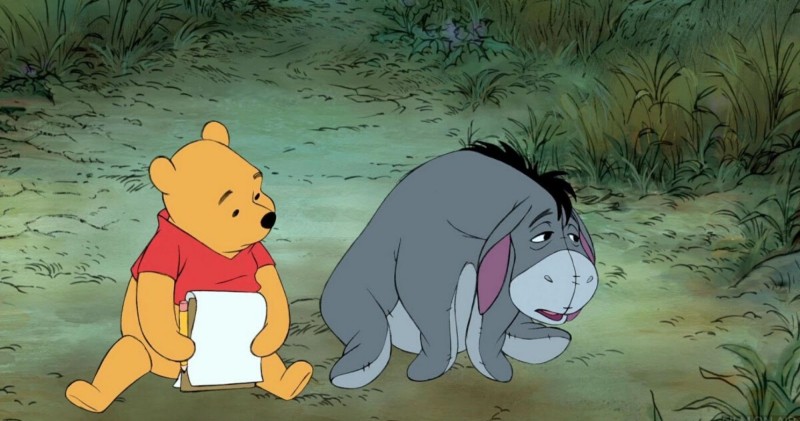
It’s the only cloud in the sky and it’s drizzling, right on me. Somehow, I’m not surprised.
They haven’t got brains, any of them. Only grey fluff that’s blown into their heads, by mistake.
Could you ask your friend to do his exercises somewhere else? I shall be having lunch directly, and don’t want it bounced on just before I begin. A trifling matter, and fussy of me, but we all have our little ways..
Don’t be ‘Happy-Clappy’ Optimistic!
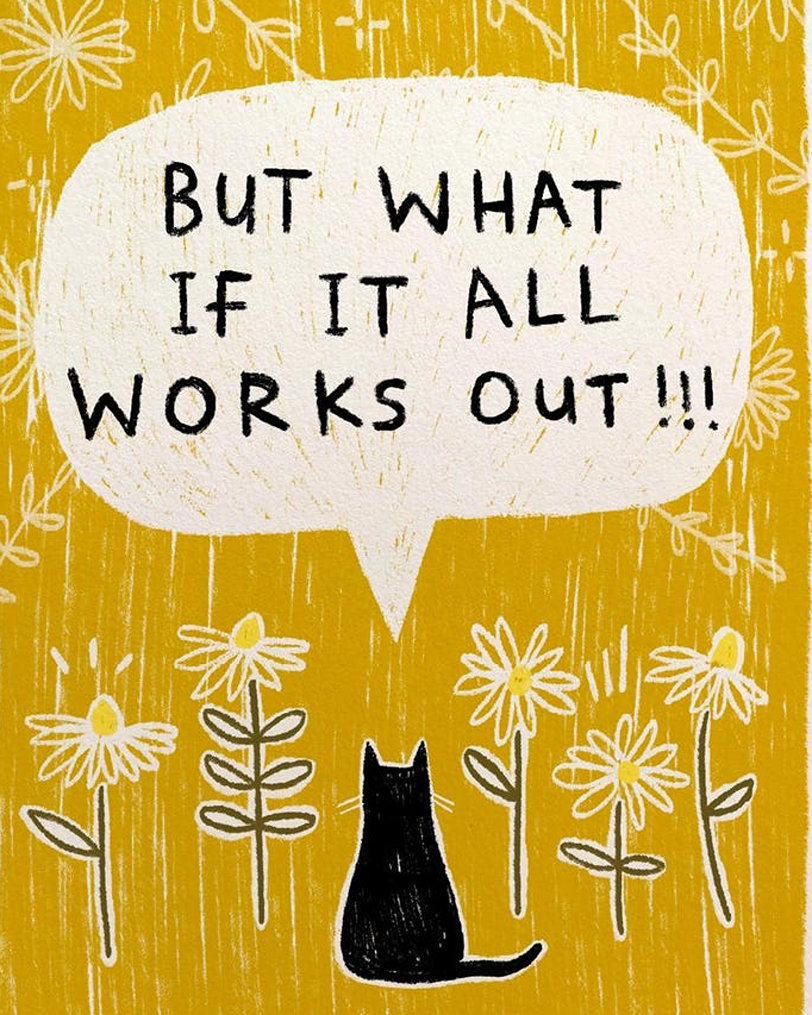
This is something often told to us these days by New Age gurus, who say if we think happy, then we will be happy. Actually, your mind just tells you that you are pretending, and tells you to shut up. It’s far better to feel your way through heartbreak, to come out the other side.
It’s said that people in the USA have less depression. Yet actually behind the white shiny smiles, many who answer surveys are taking anti-depressants, so the answers are a bit skewed.
When ‘happy countries’ like Denmark and Finland are asked why they are so content, in fact, they say they are not. They are more like your mother used to say ‘don’t count your chickens until they are hatched’.
One Scandinavian MP said ‘If we’re the happiest nation, I’d hate to see what the others are like’. It’s said that Finns go around looking like they are in a state of national mourning. But that’s their natural way to look and be! And so they have low expectations, so are happier!
We like writer Paul Kingsnorth’s often morose look at the world, rather than the star-spangled happiness banner we are all supposed to be:
A year ago my brother (who is probably a better gardener than me, even though he insists on giving half his land over to mangelwurzels whatever they are) gave me a book on gardening by the moon.
I still haven’t done it, as I’m quote conservative (with a small C). Maybe that’s what an allotment does to you – gradually turns you into a grumpy old man in wellies and a donkey jacket.
Or maybe it just smacks of new age freakery. There are no wind chimes on my allotment. I do not sing to my seedlings. They just grow. Good old-fashioned common sense prevails. Biodynamic gardening has me running for the bar.
Call me terribly English. But I’m seeking vegetables. And perhaps a bit of fresh air and exercise. I’m not there to unblock my chakras. I haven’t got time. I’ve got to put horse poo on the bean rows. Leave me alone. Paul Kingsnorth






